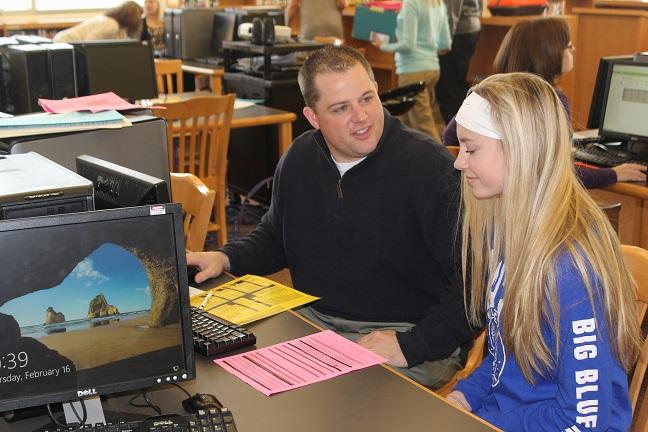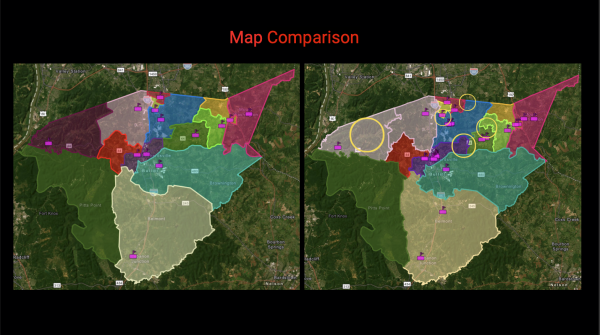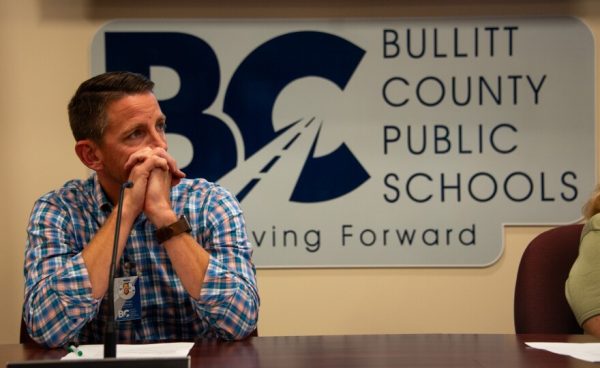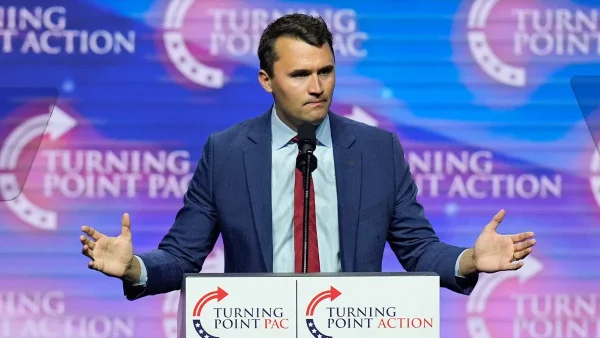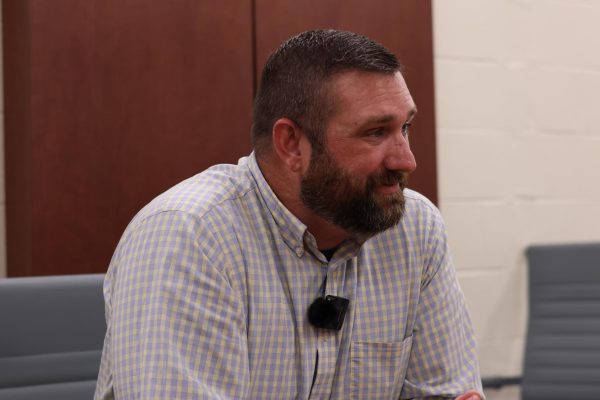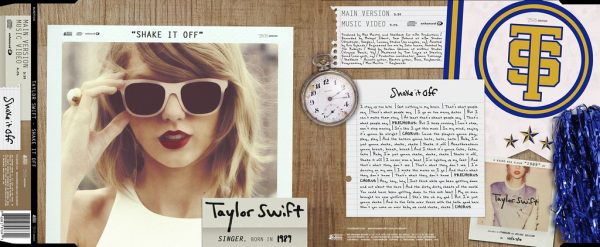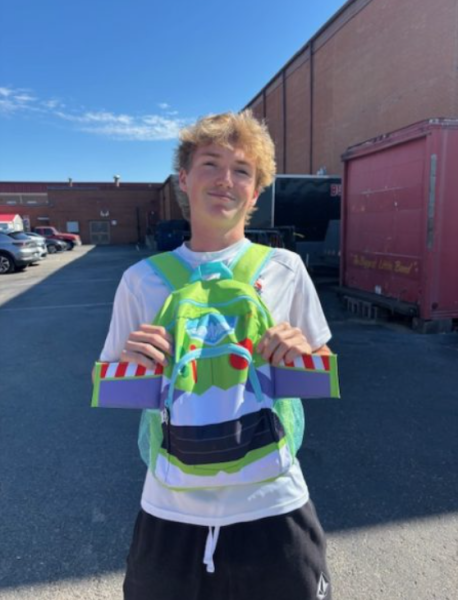New Grade, More Electives
Freshman Carissa Kimball schedules her classes with Mr. Rock.
As the school grades increase, so do the amount of electives.
The number of electives increases from a measly one to five as students advance from freshmen to senior year.
Many students wonder why the electives increase from freshman to senior year, but in the end, the administration sees it as an advantage for all of the students academically. In the view of a freshman, the benefits that are given to the senior outweigh the disadvantages of freshman year. In senior year, many opportunities are given ranging from co-oping to taking dual- credit classes.
When a student enters high school as a freshman, they are offered a structured list of five required classes in that includes one math, English, social studies, science and physical education/ health class. The semester-long classes of history and appreciation of the visual and performing arts (HAVPA) and digital literacy are also required classes but can be completed at any time in high school. However, they are suggested for the students to take freshman year. This leaves the freshman class with only one or two electives to choose from.
On the other hand, when a junior is completing their schedules for their senior year, the only required classes are those of English and math. If the senior has not completed their requirements for HAVPA or digital literacy, they have to complete it their senior year. This means seniors will have four or five electives to select.
One of the reasons that there is such a big gap in between the amount of electives between freshman and senior year is to give the seniors the chance to go outside of school and work or learn in the community. “It gives flexibility for our students as they get older. So, it allows for them to have room to be able to co-op or take dual credit here at Bullitt East or to go to JCTC (Jefferson Community and Technical College),” said Savannah Richardson, guidance counselor.
Another reason that the majority of electives are held up to the senior year of high school is because it can benefit the seniors academically. “It gives them opportunities to take more AP classes that would prepare them for college and typically by the time you get to your senior year, you’re a little more focused on what you want to study. So, it lets students narrow in on science or math or art, whatever it may be, whereas in the freshman year, they might not have the same idea,” said Richardson.
In the view of the faculty of Bullitt East, the seniors have many advantages when it comes to the large amount of electives, but the small amount of electives for the freshman are also very beneficial. The transition from middle school to high school can be challenging for a freshman, but the set list of required classes in freshman year gives a good sense of structure for the new students. “They are still young and transitioning into a new school, so if they came and didn’t have that structure and didn’t have those required classes, they might waste time taking classes that they really didn’t understand or that were above their head. It might be more of a struggle of a transition,” said Richardson.
While some students may see that having barely any electives to choose in freshman year as a bad thing, there are positives to having only one or two electives. “It’s good as a freshman because you can get the harder stuff out of the way for the most part,” said freshman Carson Armstrong. He continued to describe the benefits that would come about when he becomes a senior, “It’s nice as a senior, you don’t have to take as many hard classes, so that kids that aren’t super interested in going to college and moving forward in their education, they would have an easy final year and maybe get a job and work half days.”
Freshman Carissa Kimball agreed with Armstrong when she said, “if you have the easier classes at the end, you can have more time to do stuff.”
Contrastingly, having only up to two electives in one year can take some freedom away from the away from the freshman to be able to choose the classes they want. “They have more freedom than us to take the classes they want to take,” said Kimball.
“As a freshman, you don’t get much opportunity to get into stuff you want to do, you’ll have to wait till you’re older, which means there’s less time for learning it,” said Armstrong.
As the freshman is transitioning from middle school to high school, it can sometimes be difficult to keep track of all seven classes, and with five or six of those classes being required, if they end up failing any of the required classes, they will have to be retaken in some format. “If students struggle with transitioning and getting used to high school coursework and they fail, the classes they’re failing are required, so they have to make them up. Whereas, sometimes if you fail an elective, it’s not necessarily required and you wouldn’t have to make it up,” said Richardson.
When students get to their senior year, they are able to take up to five electives. This is in result of the fact that most of them have completed all the required core classes.
“Having a lot of freedom is great, but also gives me some stress because I need to make sure I am picking the best classes to ensure success for my future,” said incoming senior, Mallory Tinker. She added that she does not want her senior year to go to waste.
Seniors may have freedom and choices in the classes they take, but these choices are very difficult for some students. With all of this freedom, seniors have the choice of piling up advanced courses, combining average classes with some advanced courses or taking average classes. “I need guidance to make sure the classes I choose are best for me. I know a lot of my classmates go for the easy route because there is so much freedom and that can’t be best for everyone,” said Tinker.
However, the freedom of having up to five electives can also be an advantage. “(More electives give) more choices to make your schedule fit your needs better, and also the opportunity to take classes you are interested in, not just the required classes,” said junior Gavin Galitsky.
“I’m planning on taking harder math and English classes, but more easy science classes and electives,” said Galitsky. Galitsky plans on taking English through JCTC. Many students take these classes at JCTC and they are known as dual-credit.
“JCTC classes are a great option and I plan to take advantage of that… because those are some of the basic classes, you have to take those classes as prerequisites and it would help me a lot to get those out of the way,” said Tinker.
To be able to become “career ready” there are many factors, but one of the main ones is to pass three classes of the same pathway. “I can take multiple classes for one pathway, so I can get my pathway completed,” said junior Dylan Quick. If a senior has been taking a pathway classes and they continue to follow down that pathway, then in their final year of high school, they could be able to finish up the pathway and become “career ready.”

